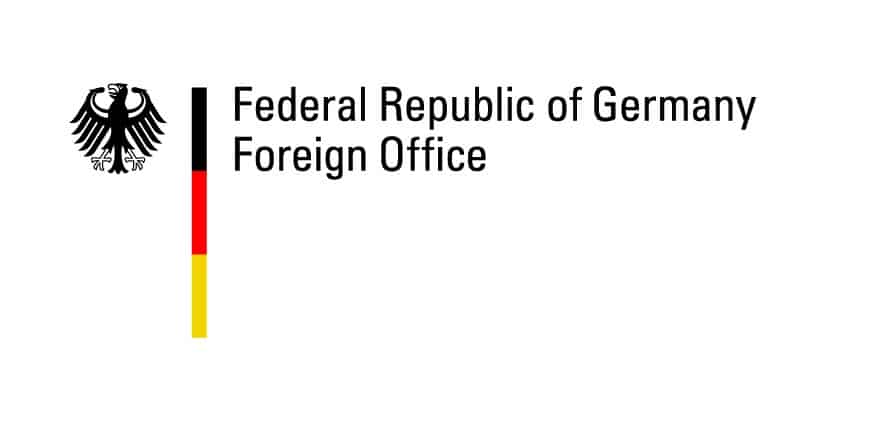Strengthening Legislative Compliance and Constitutional Interpretation in Jordan
In 2011, King Abdullah II of the Hashemite Kingdom of Jordan emphasised the creation of a Constitutional Court as a step towards promoting the principle of the separation of powers and for realising the rights and liberties provided for in the Jordanian Constitution. Following the issuance of a royal decree, the Kingdom of Jordan took an important step by amending the Constitution to reflect the new legal framework, and passing a law which would establish the Constitutional Court of Jordan. The Court was established in 2012 and began its work towards the end of 2012.
Between 2014 and 2015, the Foundation successfully delivered a tranche of capacity building workshops for members of the Constitutional Court, as well as a series of capacity building workshops for over 70 trainee and sitting judges with the Judicial Institute of Jordan, to enhance their understanding of the roles and functions of the Constitutional Court in Jordan from a comparative constitutional perspective.
In 2016 and 2017, the Foundation team delivered intensive capacity building workshops for members of the Constitutional Court, judges of the Court of Cassation and ordinary courts, as well as for executive institutions, in order to enhance the cooperation and inter-relationship between the various judicial and executive institutions in Jordan, mandated with the delivery of constitutional justice.
From 2017-2019, the Foundation built on the capacities strengthened in the previous years to provide advanced training and technical expertise to judges of the Cassation, Administrative, Military and Shari’a Courts on comparative constitutional jurisprudence, the substantive and procedural interaction between the Constitutional Court and ordinary courts. The project also included a component to strengthen the capacity of members of the recently created Supreme Constitutional Court of Palestine (est. 2016) and members of the Constitutional Court of Jordan on the roles, functions and competencies of modern constitutional courts and the types and effects of their decisions.
The current project in Jordan (2020-2022), Strengthening Legislative Compliance and Constitutional Interpretation in Jordan, builds on the successes – and learns from the challenges – of past projects and seeks to enhance the capacity of legal and judicial institutions with a holistic approach to two key functions, namely drafting and interpreting the law.
The overriding focus of this project will be the compliance of laws with the Constitution and with international law applicable in Jordan. Two technical aspects will be central to the project: legislative drafting and judicial interpretation. In the first component, the Foundation will work closely with the Bureau for Legislation and Opinion (Diwan al-Tashri’ wa’l-Ra’i) to strengthen the legislative drafting capacities of its legal drafters. The aim of this component is to strengthen the compliance of Jordanian laws with the Jordanian Constitution and ratified international law. In the second and third components, the Foundation will work with members of the Constitutional Court and judges of the ordinary courts in two selected governorates outside Amman, respectively, to enhance their understanding of judicial interpretation of laws in compliance with comparative constitutional law and international law. These activities will be supplemented with the fourth component of the project, which will deliver trainings for court clerks and administrative court staff of ordinary courts in two governorates to enhance their capacities for strengthening and facilitating access to justice.
Funding

Duration
15 March 2020 – 14 March 2022
News Items

The Foundation provides training to Administrative Staff of Zarqa Courts in Jordan on Codes of Conduct for Professionals in Judicial Administration

The Foundation provides training for Judges of the Balqa and Zarqa Courts in Jordan on Effective Judicial Decision Making

The Foundation provides training for Judges of the Balqa and Zarqa Courts in Jordan on Effective Judicial Decision Making

The Foundation provides training to Administrative Staff of Balqa Courts in Jordan on Codes of Conduct for Professionals in Judicial Administration

The Foundation provides training for Judges of the Balqa and Zarqa Courts and the Administrative Courts in Jordan on the Boundaries of Judicial Review

Max Planck Foundation provides technical support to Legal Drafters at the Bureau for Legislation and Opinion in Jordan on Drafting Legislative Amendments

The Max Planck Foundation convenes a high-level Seminar with the Constitutional Court of Jordan on the Interpretation of Constitutional Provisions

The Max Planck Foundation convenes high-level seminar on the Role of the Constitutional Court of Jordan in the Constitutional and Legal System

The Foundation provides training for Judges of the Balqa and Zarqa Courts in Jordan on Judicial Referral of Constitutional Challenges

The Foundation provides training to Administrative Staff of Zarqa and Balqa Courts in Jordan on Access to Justice for Vulnerable Groups

Foundation provides technical support to the Bureau for Legislation and Opinion in Jordan on Drafting Electoral Laws

The Foundation provides training on Records and Document Management for judicial clerks and administrative staff of the ordinary courts in Balqa Governorate, Jordan

The Foundation provides technical capacity building support in legislative drafting to the Bureau for Legislation and Opinion in Jordan

Consultative Seminar on Practical Application of Constitutional Review and Oversight

Foundation provides training on Procedural Fairness and Access to Justice to Clerks and Staff of the Courts in Zarqa, Jordan

The Foundation provides training to Administrative Staff of the Courts in Balqa, Jordan, on procedural fairness and access to justice

The Foundation provides training to Administrative Staff of the Courts in Zarqa, Jordan, on procedural fairness and access to justice

Judges in Zarqa Governorate in Jordan attended a workshop on Judicial Interpretation and Reasoning

Workshop with Judges in Balqa Governorate in Jordan on Judicial Interpretation and Reasoning

Memorandum of Understanding signed between the Bureau of Legislation and Opinion of Jordan and the Foundation
Contact

Kathrin Maria Scherr
Email:
Phone: +49 (0)6221 91404 34
(See full profile)
